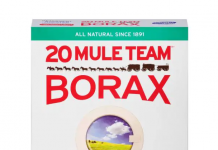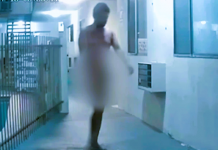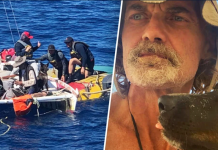In the Australian Outback, authorities are on a mission to locate an item of utter importance: a cylinder less than one inch in size containing radioactive material that could cause serious harm and injury if touched.
Utilized in numerous industrial mining operations, the cylinder is called cesium-137 ceramic.
It fell out somewhere along a 900-mile stretch of highway, about the distance between New York and St. Louis. “It’s believed the container it was in at the time collapsed as a result of vibrations during the trip and unfortunately that included the loss of a bolt that was holding it on and it fell through that bolt hole,” said Andrew Robertson, Western Australia’s chief health officer and chair of the Radiological Council.
He warned that exposure could result in radiation burns or even a fatal medical condition. Authorities are concerned that the capsule could have been lodged in the tire of a vehicle traveling along Western Australia’s sparsely populated highway outside Perth. This would have exposed those in the vehicle to radiation levels equal to about ten X-rays an hour or a year’s worth of radiation received by the average person.
Dr. Robertson said, “Our concern is that somebody will pick it up, not knowing what it is, think ‘Oh, this is something interesting’ and keep it…not knowing what they are actually dealing with.”
To locate the capsule, officials are systematically navigating through a priority list of places to search, such as where the truck was loaded, and utilizing its GPS system for identifying any stops that were made. A team of experts armed with handheld meters has been deployed to the specified sites in order to detect radiation levels and trace the capsule.
The technology has its constraints though. Nigel Marks, a material scientist at Curtin University, stated that anyone carrying these portable sensors must move slowly enough to catch a signal.
Subsequently, Western Australia’s Department of Fire and Emergency Services has called in specialized tools to accelerate the search process. This technology will enable them to scan significant areas alongside highways while traveling. Police and health experts are also assisting.
Roger Cook, Western Australia’s deputy premier, expressed fear that it had potentially found it’s way from the Outback into the metropolitan area. “It’s very concerning that such a toxic substance has managed to find its way into the community somewhere.”








